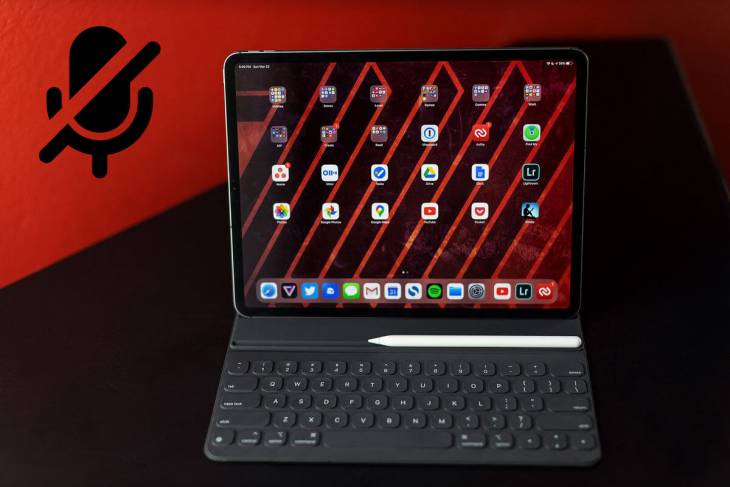iPad models released in 2020 come with a hardware microphone disconnect feature that prevents eavesdropping when the device’s case is closed.
Apple previously equipped their recent MacBook models with a security feature that intelligently switches off the microphone when the lid is closed. Now it’s turn for iPad devices to get a similar functionality off the shelf. The extra protection against snooping starts to go live in the 2020 iPad Pro. Instead of closing the lid, which is obviously not the case with the mobile devices in question, the mic cut-off feature is triggered when the user closes the case. The only caveat is that it has to be an MFi compliant case – for those uninitiated, the acronym denotes “Made for iPhone/iPod/iPad”. Therefore, to fully benefit from this remarkable anti-eavesdropping technology, you need to use the latest device model plus the right case, which can as well be one supplied by Apple.

As mentioned above, this initiative has a background and iPads won’t be pioneering in this domain. All Mac portable computers that have the Apple T2 Security Chip on board have this feature in place by default. For the record, the models already secured this way include 13-inch MacBook Air and MacBook Pro laptops with the T2 chip under the hood, as well as 15-inch MacBook Pro machines manufactured in 2019 onward. The microphone shut-off function is implemented at the hardware level, which means all types of surveillance are a no-go as long as the lid is closed. Once the disconnect is triggered, no applications can access or re-enable the microphone under any circumstances. The blocking even applies to apps with kernel or root permissions, including ones residing on the T2 chip. It’s noteworthy that this mechanism works for the mic only. The camera isn’t disabled in hardware for the obvious reason that it cannot possibly capture anything when the laptop’s lid is closed.
In the case of the iPad, Apple chose to take the well-trodden path, except that the lid principle gives in to the case. As long as an MFi case is attached to the gadget and closed, the microphone hardware is completely disengaged and stays that way until the usage session is resumed by lifting the case. Again, this method has a substantial advantage over any form of software-based blocking because all applications, including those that have root or kernel privileges in iPadOS, have absolutely no chance to access the microphone and thereby keep tabs on what the user is doing. This unconditional restriction also holds true for apps that may try to exploit the microphone when the firmware is modified or otherwise compromised. The camera app isn’t subject to such a measure because it cannot record any videos with the case closed anyway.
All in all, those using the iPad models that support the hardware microphone disconnect feature can now rest assured that nobody can snoop on their conversations no matter what scope of privileges the hypothetical adversary’s malicious code may have on the device. That’s really welcome these days when privacy encroachment is among the top threats for both individuals and businesses.
